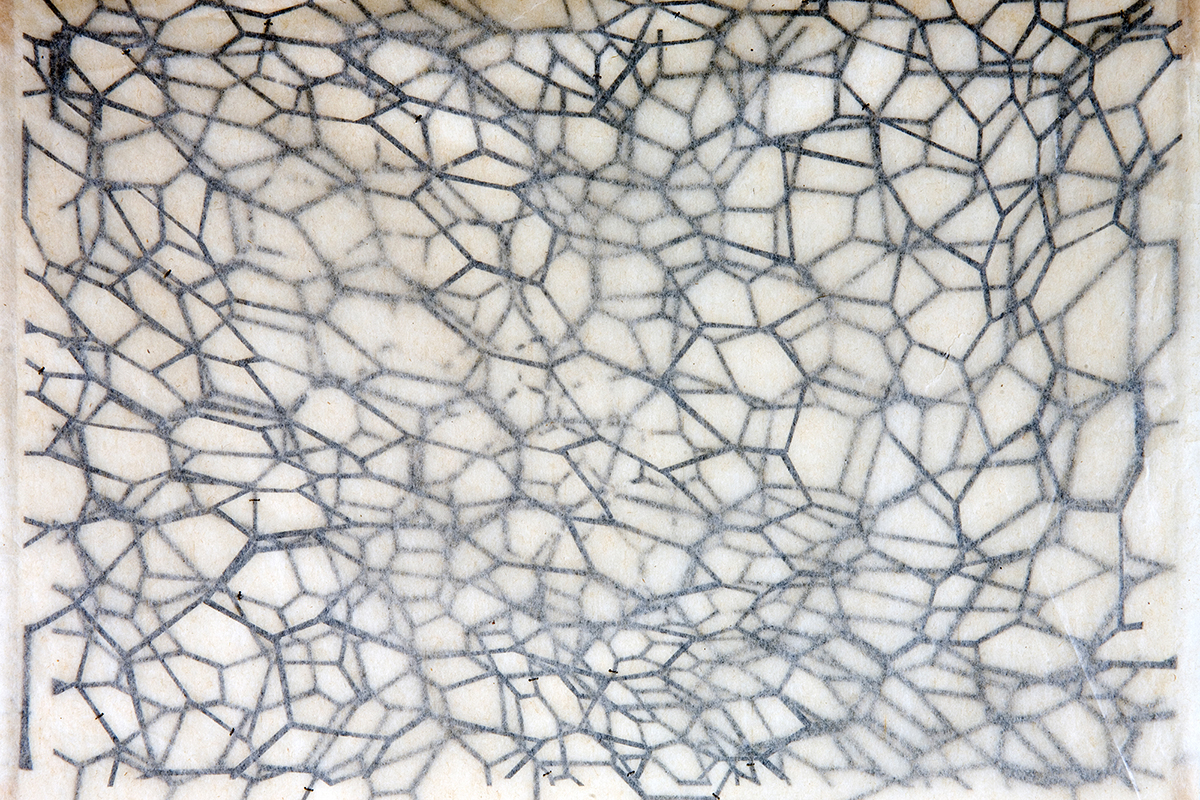Gudny Rosa Ingimarsdottir
SAUDADE
“Nothing exists that doesn’t touch anything else”
As humans, in a fast-paced society, we change slowly every day. No one comes unscathed from that constant revolution. Everyone bears the stamp of time gone by. Everything passes, we are only here for a moment, and we know that.
In the excellent Paul Demets’s new collection, the clover course, the poet testifies about how time batters us. One of the pivot points is the grief of the parent who discovers that his offspring needs him less and less: “Welcome home. Nobody can stay here”.
The theme of the 39th edition of the Funstenfestival Watou is twofold but inextricably linked this year. The untouchable “Saudade” is Portuguese and stands for a way of being. It includes the constant invisible presence of indefinable melancholy and the endless search for something that we do not even have a well-defined memory for. The musings that the word evokes come down to homesickness, melancholy, nostalgia and nostalgia with a non-tangible origin. The Portuguese culture and daily life of the Portuguese are imbued with it. They are proud of it and claim it as a national pride. Saudade has a fatalistic undertone, because the object of your desire may never return. It can be described as “the love that remains after your loved one has disappeared.” Saudade at the same time evokes sad but also happy feelings: sadness for the loss, but also gratitude for the love that you have been able to experience. Saudade is sadness mixed with gratitude.
This state of mind, which is difficult to describe, is recognizable to everyone because it is interwoven in human DNA and belongs to human condition. That is why we also added the quote “Nothing exists that does not touch anything else” from the novel Bezonken Rood by Jeroen Brouwers. Our lives are interwoven with chance passing encounters with each other, with the things around us, with our daily environment and with other cultures. Sometimes fleeting and not really noticeable, sometimes deeply touching. Sometimes connected, from our origins, sometimes detached. Usually not immediately identifiable and yet drastic.
Writer and philosopher Frans Frijns describes it in his work “About the elderly and how they deal with the past”: “Nostalgia operates on the understanding that everything is already lost and therefore there is nothing left to lose. In this way she creates openness for the unexpected. In this way she connects the past with the future, the known with the unknown. Nostalgia is the creative feeling that enables people to gain new experiences. Nostalgia is the living experiencing self. ”
Writer Adam Zagajewski attributes it to our “mutilated world” that is anchored in the eternal cycle of transience with a new beginning and a goodbye immediately attached to it. Those who are melancholy experience the meaning of life, the value and the vulnerability.
In the work of most artists, writers, poets and other creative makers, this inevitable transience is frequently discussed. They pay a particular attention to the coherence of things and the fact that “Nothing exists that does not touch anything else” and our almost defenseless dependence on the law that is woven into our human being.
They are attentive and inquisitive in life and tell about it. They do not always offer answers, but their stories connect and feed us. They make us think about what makes us human and recognizable.
As tradition dictates, we show an inspiring mix of up-and-coming talent and big names. They fertilize each other. And if all goes well, they help us to better understand ourselves and each other.
This year too, Kunstenfestival Watou will make a trip to the center of Poperinge with a “festival-off-location”. In the Gasthuiskapel, artist Didier Mahieu presents a solo installation in which he translates his vision on the theme.
Every year the poets, writers, artists and other creative spirits give shape to an exceptional meeting place at the Kunstenfestival Watou. Discover them with attention.
They tell the story of all of us.
Enjoy it because nothing exists that doesn’t touch us. We look forward to seeing you.
– Jan Moeyaert
Intendant vzw Kunst / Stichting IJsberg vzw Kunstenfestival Watou, summer 2019.
Read more about Gudny Rosa Ingimarsdottir
